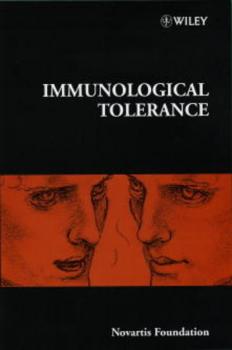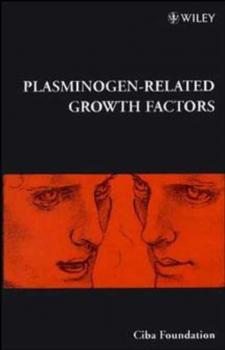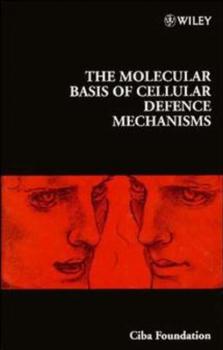Gregory Bock R.
Список книг автора Gregory Bock R.Precision Agriculture
This book investigates new agricultural systems such as organic and green manuring, as well as integrated pest management practices, and looks at how they can improve farm productivity against the enhancements for the environment. Much of the information presented focuses on microinvestigation of the soil, and on the effects of soil variability within fields on yields and nutrient flows.
Genetics of Criminal and Antisocial Behaviour
This book offers a fresh perspective on the controversial topic of criminal and antisocial behavior. It synthesizes findings from behavioral and population genetics, evolutionary biology and criminology and presents the latest findings in twin studies, adoption cohort studies, molecular genetics and animal models for human aggression. Also included is a detailed analysis of the legal implications of genetics and crime research and strategies for rehabilitation.
Autism
This book draws together contributions from some of the leading investigators in the field of autism to consider specific problem areas in current research. Each contributor brings expertise from a different field, providing a balanced view of the whole spectrum of study of this disorder. It covers four main areas: Twin and family studies indicate that the heritability of the underlying liability to autism exceeds 90% and point to a multifactorial causation, involving a relatively small number of susceptibility genes. The book discusses this issue in detail, along with the problem of why some additional symptoms are associated with autism while others are not. New techniques are available for examining the neurobiology of autism. The book contains results from imaging studies showing the contributions of different brain regions to autism. It includes neuropathological data and examines the neuropharmacology of autism. There is considerable discussion concerning the fundamental psychological deficit in children with autism. There is good evidence that «Theory of Mind» deficits are associated with autism and this issue is discussed in the book, as are other competing possibilities. The most important practical question facing medical and psychological practitioners is how to help children with autism. The evidence relating to possible psychological or psychiatric interventions for rehabilitation of children with autism is examined in detail. Drug treatments have generally been disappointing in this field and there is one chapter devoted specifically to this problem. The book focusses ultimately on intervention studies and so is of practical relevance to people interested in helping autistic children. In addition, it provides a very convenient summary of the principal controversies which currently exist in research on autism.
Cortical Development
To understand the brain and its devastating diseases, we need to reveal the mechanisms that produce it and the ways in which it can constantly change throughout a lifetime. This book features a timely and insightful discussion between developmental neurobiologists and clinicians who deal with disorders of the nervous system. Chapters in this book deal specifically with cell fate determination, cell migration and disorders of cell migration; current concepts and new ideas about cortical arealisation, and disorders which can arise from incorrect arealisation; genes implicated in the development of cortical connectivity and related pathologies such as schizophrenia and synaesthesia; and susceptibility genes for cognitive disorders such as schizophrenia, autism, dyslexia, and attention deficit disorder.
Immunological Tolerance
This book brings together material on all aspects of immunological tolerance. Basic mechanisms of tolerance are examined in detail, including mechanisms of peripheral T cell tolerance, molecular and genetic mechanisms for maintaining self tolerance, partial T cell activation, and the role of apoptosis in tolerance. Careful consideration is also given to the clinical applications of our understanding of immunological tolerance, with specific chapters dealing with T cell activation during tumour therapy, antiantigen specific immune suppression, tolerance in infectious diseases, tolerance during pregnancy, and tolerance during various autoimmune diseases.
Plasminogen-Related Growth Factors
A timely volume dealing with the evolutionary and structural links between the clotting and fibrinolytic proteins and plasminogen-related growth factors. The role of individual domains for enzymatic proteins and plasminogen-related growth factors is also comprehensively examined.
The Molecular Basis of Cellular Defence Mechanisms
The field of lymphokine research has grown in parallel to the exciting developments around the two sets of cells which defend the body. While lymphokines are the «property» of immunologists, the molecular regulators of hemopoiesis (CSFs) belong to the hematologists. This book offers the rare opportunity to examine these separate fields of expertise together.
Molecular Approaches to Human Polygenic Disease
Many common human diseases have a multifactorial origin: they are influenced by a person's genetic predisposition as well as by factors in the environment. This volume deals with the application of recombinant DNA techniques to the identification of diseases that have more than one inherited component. Focus is on the polygenic factors responsible for coronary atherosclerosis. Several other disorders having a polygenic origin are also discussed, including hypertension, diabetes mellitus, psychiatric diseases, and autoimmune (HLA-related) disorders. Problems raised by the study of different families or different populations are covered, as well as the possibility of applying molecular techniques to disease prevention–for example, through gene therapy. Also, some of the ethical issues that relate to human gene mapping are briefly explored.
Defining Optimal Immunotherapies for Type 1 Diabetes
This book is a comprehensive and up-to-date account of where we stand in immunological strategies for preventing or treating type 1 diabetes (T1D). Brings together contributions from the leaders in the arena of clinical immunotherapy, not limited to the diabetes field exclusively, in order to delineate a road-map that would lead to future clinical trials. The book integrates information from human and animal studies. The book considers T1D within the broader context of autoimmune disease. The format contains several discussions, which address specific questions and provides guidelines for future strategies and solutions for discovering a cure.
Evolution of Hydrothermal Ecosystems on Earth (and Mars?)
This book explores the possibility that life exists on Mars. It provides an interdisciplinary overview of the early evolution of life in hydrothermal ecosystems on Earth, focusing on the problem of remote sensing and incorporating geological work relevant to the search for evidence of early life on Earth and Mars. It discusses the belief that studying thermal spring deposits as part of this search may be the best opportunity to test whether life on earth is a «unique experiment,» or whether there is life elsewhere in the solar system.









